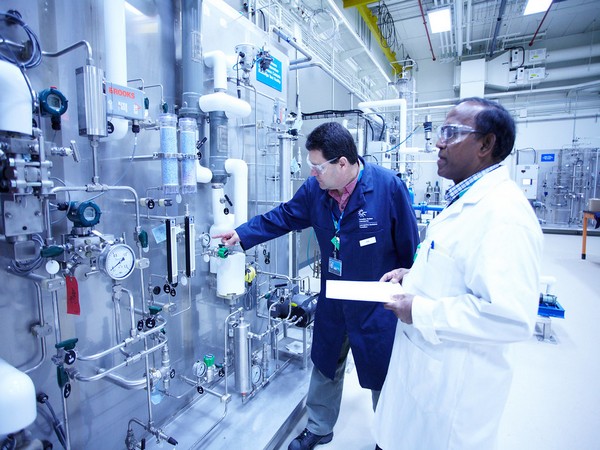IAEA conducts Operation and Maintenance Assessment at Brazil’s IEA-R1 research reactor site
“The preliminary results of the mission have proven to be very useful as guidance for the operation of our research reactor,” said Isolda Costa, Director of the Nuclear and Energy Research Institute.

An IAEA-led team of experts has concluded an Operation and Maintenance Assessment for Research Reactors (OMARR) mission to the IEA-R1 research reactor site in Brazil. Performed at the request of the Brazilian government, the mission aimed to help improve operational and maintenance practices at the 5 MW research reactor.
IEA-R1 is a pool-type research reactor at the Research Reactor Centre (CERPq) in São Paulo which first entered operation in 1958. is used for a variety of applications leveraging the reactor’s neutron production capabilities, including neutron radiography, neutron activation analysis, as well as medical and industrial applications, among others. IEA-R1 is also used for research in physics, education and training, with most training activities in recent years focused on training the operating crews of new research reactors projects.
During the visit last month, the mission team assessed CERPq’s practices in strategic planning, plant configuration and design, organization, quality assurance, procedures, scheduling, modernization, ageing management, audits, and inspections. They also performed a facility walkthrough, reviewed relevant plant documents and were present for a startup and operation at full power.
“The preliminary results of the mission have proven to be very useful as guidance for the operation of our research reactor,” said Isolda Costa, Director of the Nuclear and Energy Research Institute. “As we plan to keep IEA-R1 running for at least another decade and prepare to launch a new research centre with a 30MW multipurpose research reactor, we will look to the recommendations of the mission team to support the sustainability of our research reactor activities.”
The mission team led by Ruben Mazzi, IAEA Technical Lead for Research Reactor Operation and Maintenance, provided several recommendations such as enhancing communication of goals, plans and activities as well as providing staff training on the plant’s quality assurance manual. The team, which included experts from Germany, Italy and South Africa, recommended a follow-up mission to take place within a few years and suggested that the site could also benefit from Integrated Research Reactor Utilization Review (IRRUR) and Integrated Safety Assessment of Research Reactors (INSARR) missions.
“IEA-R1, the first research reactor in Brazil, has operated continuously for more than six decades, and the long-term success of this facility can be attributed to CNEN’s commitment to robust operational and maintenance practices,” said Mazzi. “CNEN has proactively striven to continuously improve the way their facilities are run, and we look forward to seeing an increase in IEA-R1’s availability by implementing the recommendations and suggestions given by the IAEA's Team.”
The IAEA will host the International Conference on Research Reactors: Achievements, Experience and the Way to a Sustainable Future from 11-15 November 2024 in Vienna, the first such conference since 2019. The meeting will focus on how to maximize the benefits provided by research reactors, with a primary focus on achievements, experience and the way to a sustainable future for these facilities.
- READ MORE ON:
- IAEA
- Brazil
- Research Reactor Centre










